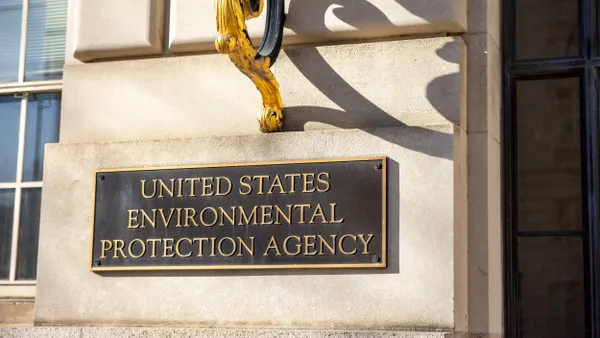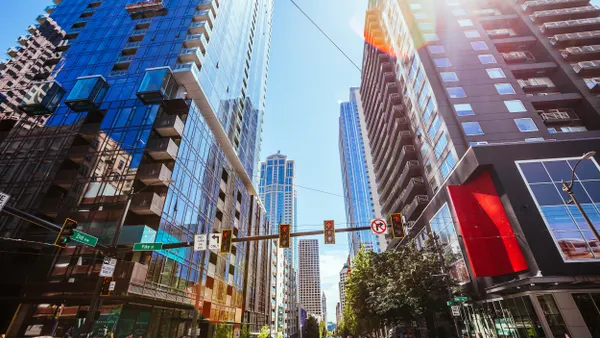Dive Brief:
- The Los Angeles City Council unanimously adopted a measure to improve the process and funding structure for developing permanent supportive housing for the homeless through the $1.2 billion Proposition HHH supportive housing bond.
- The city will allocate $120 million to create a pilot program for building 1,000 units of supportive housing. The mayor has been authorized to issue a request for information (RFI) for developers to submit strategies for building the housing more reasonably and quickly without compromising quality.
- Construction on the supportive housing units must be completed within two years of funding approval and must show long-term financial and physical stability.
Dive Insight:
One of the recommended actions in the council documents for the adopted regulation is to "stress the city's state of urgency as it relates to addressing the homeless problem." Documents also discussed a recommendation to declare a state of emergency to more quickly make resources available, but that was ultimately deemed unnecessary at this time.
The underlying theme throughout the documents is that Los Angeles' homelessness problem has grown significantly and rapidly. In fact, the city did declare a state of emergency on homelessness in 2015 and requested additional funding. Last April, Mayor Eric Garcetti declared a shelter crisis and signed ordinances to address the problem, including Proposition HHH.
Proposition HHH passed in 2016 to make available $1.2 billion for homeless assistive services. But as indicated by the Los Angeles Times, the process for developers to access the funds for their projects has been painfully cumbersome and slow due to federal, state and local bureaucratic processes and regulations. That has led to supportive housing construction occurring at a much lower rate and slower pace than city leaders believe is necessary to prevent the situation from worsening. The city council passed the new measure to remove some of the obstacles and get developments up faster.
The recommendations include easing a number of city regulations and making them more flexible for developers to work with. For example, the city would remove limits on the number of supportive housing projects allowed per developer and ease funding caps, and also offer incentives such as low-interest loans. Another recommendation is to release an online, one-stop application and approval process for Proposition HHH funds, starting this July.
The council documents note that proposals submitted under the RFI can be for modular or prefabricated housing and while some people have suggested including accessory dwelling units, that might not be the best fit considering the supportive services that will be required for previously homeless inhabitants.










